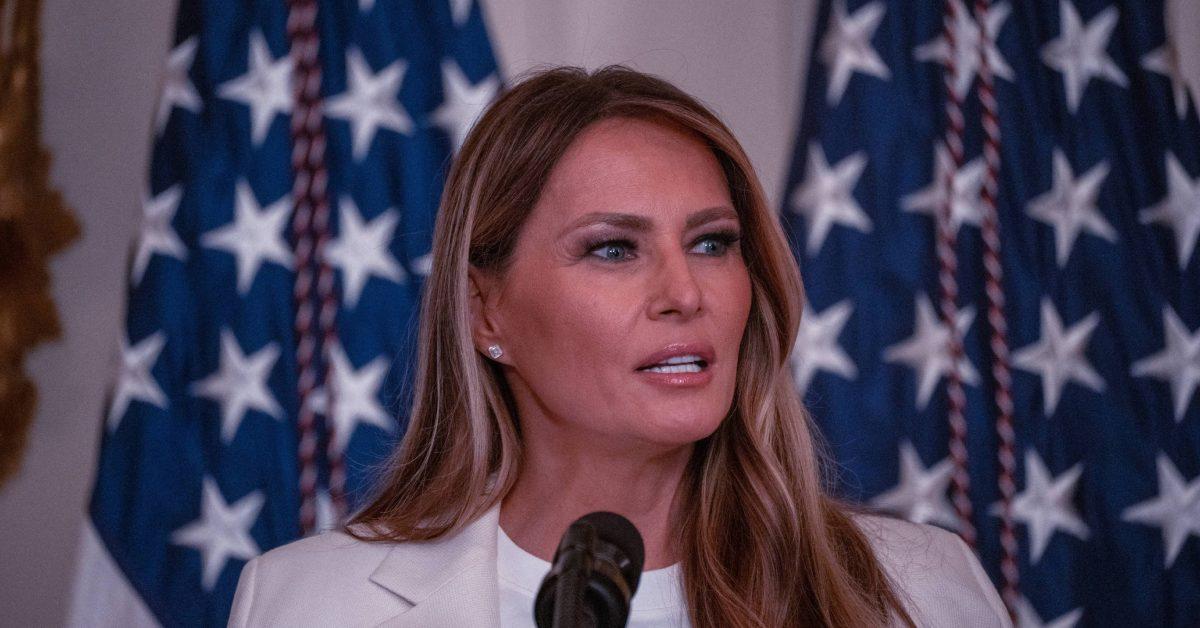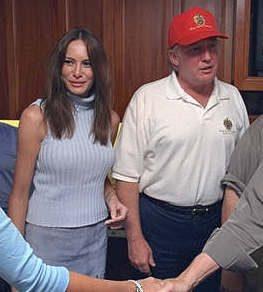The Einstein Visa Is for the Exceptional — So How Did Melania Trump Get One?
To qualify for an Einstein visa, an individual needs to demonstrate “extraordinary ability” in their field.
Published Sept. 2 2025, 2:09 p.m. ET

By now, we’ve all realized that President Donald Trump is the poster child for immigration reform, or, more bluntly, reducing the immigrant population in the U.S. While no country can be expected to open its doors completely, the Trump administration’s approach to immigration has faced intense scrutiny for his methods: from federal agents showing up in unmarked cars to using aggressive tactics to arrest immigrants, according to CNN.
Given how strict the U.S. has become about who can enter and who can be removed, the visa Melania Trump obtained in 2001 raises an interesting question. Melania received an EB-1 visa, dubbed the “Einstein visa,” just a year after applying. What's odd is that the EB-1 is usually reserved for people who demonstrate “extraordinary ability,” like Nobel Prize winners, award-winning scholars, or Olympic medalists. Clearly, Melania isn’t any of those. So, how did she get it?
How did Melania Trump get an Einstein visa?

To qualify for an EB-1 visa, also known as the “Einstein visa,” an individual needs to demonstrate “extraordinary ability” in their field and meet at least three of the ten criteria outlined by the United States Citizenship and Immigration Services (USCIS). While a scholar or a talented athlete with an Olympic gold medal could easily meet the standards, you don’t have to be Simone Biles or Adele to qualify.
You can be an “ordinary person” who can prove they’ve excelled beyond others in the sciences, arts, business, athletics, education, or received international recognition in their academic field.
But when Melania applied for her EB-1 visa in 2000 under the name Melania Knauss, she didn’t quite hit the mark.

Melania Trump in 2000.
Sure, she was a successful model from Slovenia who graced the cover of British GQ, but she wasn’t a highly coveted model (certainly not on the level of Tyra Banks, as Jasmine Crockett noted), hadn’t won major awards, and didn’t have her work displayed at artistic exhibitions, which is one of the ten criteria. To put it lightly, Melania was a model, but aside from being a little more successful than others, the bigger factor was that she was dating Donald Trump at the time.
That said, it’s safe to assume Melania’s application may have been “boosted” from the testimonials she provided. While her application and supporting evidence remain private, it’s likely she received “high-profile testimonial letters,” Nita Upadhye, a U.S. immigration specialist at NNU Immigration Law, told BBC.
Given her connections to influential individuals, including Trump, there were plenty of high-ranking people who could have written convincing letters explaining what set her apart and why she deserved the highly coveted EB-1 visa.
Melania Trump gained citizenship five years after getting her Einstein visa.
Five years after receiving the Einstein visa, Melania became a U.S. citizen in 2006, which allowed her to sponsor her parents, Viktor and Amalija Knavs, to join her in the country, according to the BBC. By mid-2018, her parents officially became U.S. citizens and even participated in a swearing-in ceremony in Manhattan, per NPR.